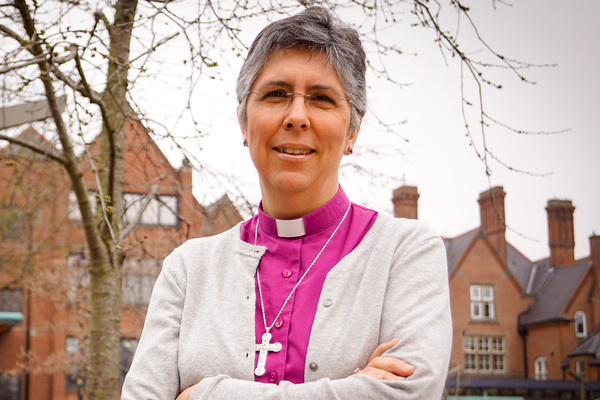You are viewing 1 of your 1 free articles

Faith groups can be a cornerstone of addressing housing need
The recent appointment of a housing bishop marks a step change in the church’s involvement in the housing crisis. It could prove an important ally, writes Kathy Mohan
Last week Inside Housing reported on the first of what will be a flurry of announcements from faith groups around housing, with the recent appointment of Guli Francis-Dehqani as Anglican bishop for housing and a dialogue around the Archbishop of Canterbury’s Commission on Housing, Church and Community.
The report of the commission, to which Housing Justice contributed, is being released in just a few weeks and the case studies for the report have today been made available on the Housing Justice website. This report would have been important before the pandemic, but in light of the many changes arising from COVID-19, this report now stands to be truly ground-breaking.
“Faith groups will remain passionately committed to issues of housing justice and alleviating housing need. Many will look for creative and innovative ways of engaging with housing need in their area”
Since I sat at Lambeth Palace for the launch of the commission almost two years ago, the way in which faith groups engage with issues of housing need and homelessness has been completely transformed, while faith groups more generally will emerge from the pandemic to face new challenges and opportunities.
One of the most established ways for faith groups, particularly churches, to engage with homelessness has been winter night shelters, which have proliferated over the past decade. But the traditional dormitory-style night shelter has become unsafe because of COVID-19 and many, perhaps most, will not return to their pre-pandemic form. The Welsh and Scottish governments have announced plans to completely phase out such provision, and in England a similar trajectory appears likely.
Nevertheless, faith groups will remain passionately committed to issues of housing justice and alleviating housing need. Many will look for creative and innovative ways of engaging with housing need in their area.
Offering emergency accommodation will continue to be a consideration for many, but so too will supported housing schemes and even efforts to increase the supply of affordable or social housing. The Everybody In scheme demonstrates that, where links can be forged, partnering with local faith groups can deliver real results rooted in communities.
“Wales in particular is leading the way in helping churches to incorporate affordable housing as an integral part of their property disposal processes”
English housing associations need not look far for inspiration for what church/sector partnerships can achieve. This week Housing Justice published a suite of examples from the work of the Archbishop’s Commission on Housing, Church and Community to show what is possible.
Wales in particular is leading the way in helping churches to incorporate affordable housing as an integral part of their property disposal processes. Housing Justice’s Faith in Affordable Housing project delivers affordable housing on church sites year after year in Wales.
In the last 18 months, a number of housing associations – such as Pobl, Cadwyn and Wales & West – have all redeveloped former church land with support from Housing Justice Cymru. More than 100 affordable homes have been delivered to date and there are another 250 in the pipeline.
The development of affordable housing on church land, or with church input, is not a panacea to the wider structural problems that underpin Britain’s housing crisis. But it does offer a wide spectrum of potential that can contribute to alleviating housing need, including in some of the areas where the need is most acute.
My team on the ground speaks of one of the key issues being the difference in culture and language. Providers and local authorities often talk about “service users”, “customers” and “client satisfaction”. Churches and faith-run projects refer to “guests” and “loving their neighbour”.
Neither is wrong, but both can make the other feel uncomfortable and it takes time to build enough trust to see the mutual aims and even have the difficult conversations about things you disagree on.
“Shared values, clearly set parameters for partnership working, and speaking the same language are crucial to successful partnerships between faith groups and providers”
In England, a combination of a different funding and regulatory framework and regional variations in the housing market have meant church sites have been frustratingly slow to come to fruition.
The Archbishop’s Commission will set out a clear statement of intent from the Church of England on housing, but the lessons from Faith in Affordable Housing in Wales should be studied by housing associations considering their part in the future. Shared values, clearly set parameters for partnership working, and speaking the same language are crucial to successful partnerships between faith groups and providers.
Kathy Mohan, chief executive, Housing Justice
Sign up for our homelessness bulletin
Already have an account? Click here to manage your newsletters











